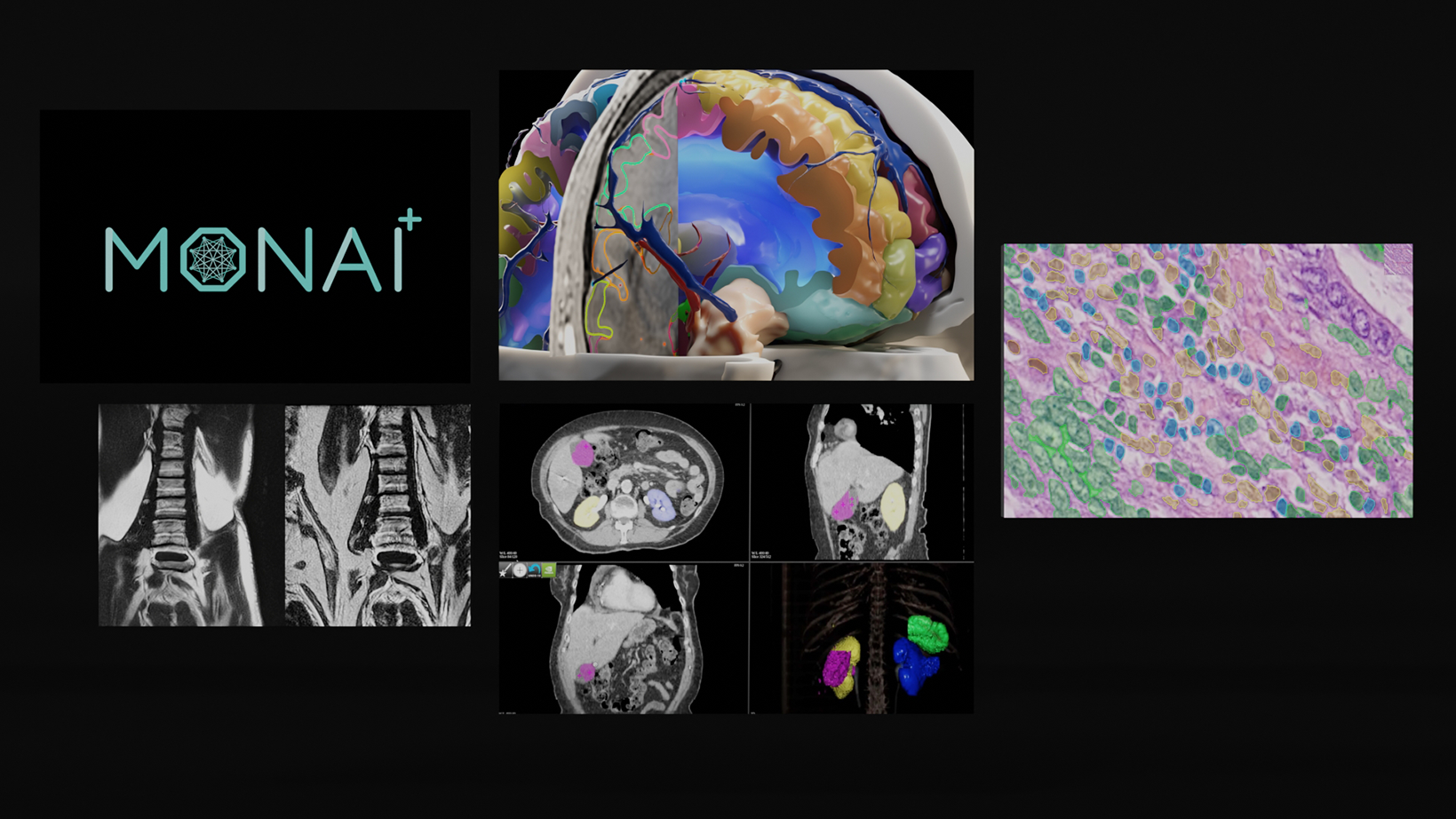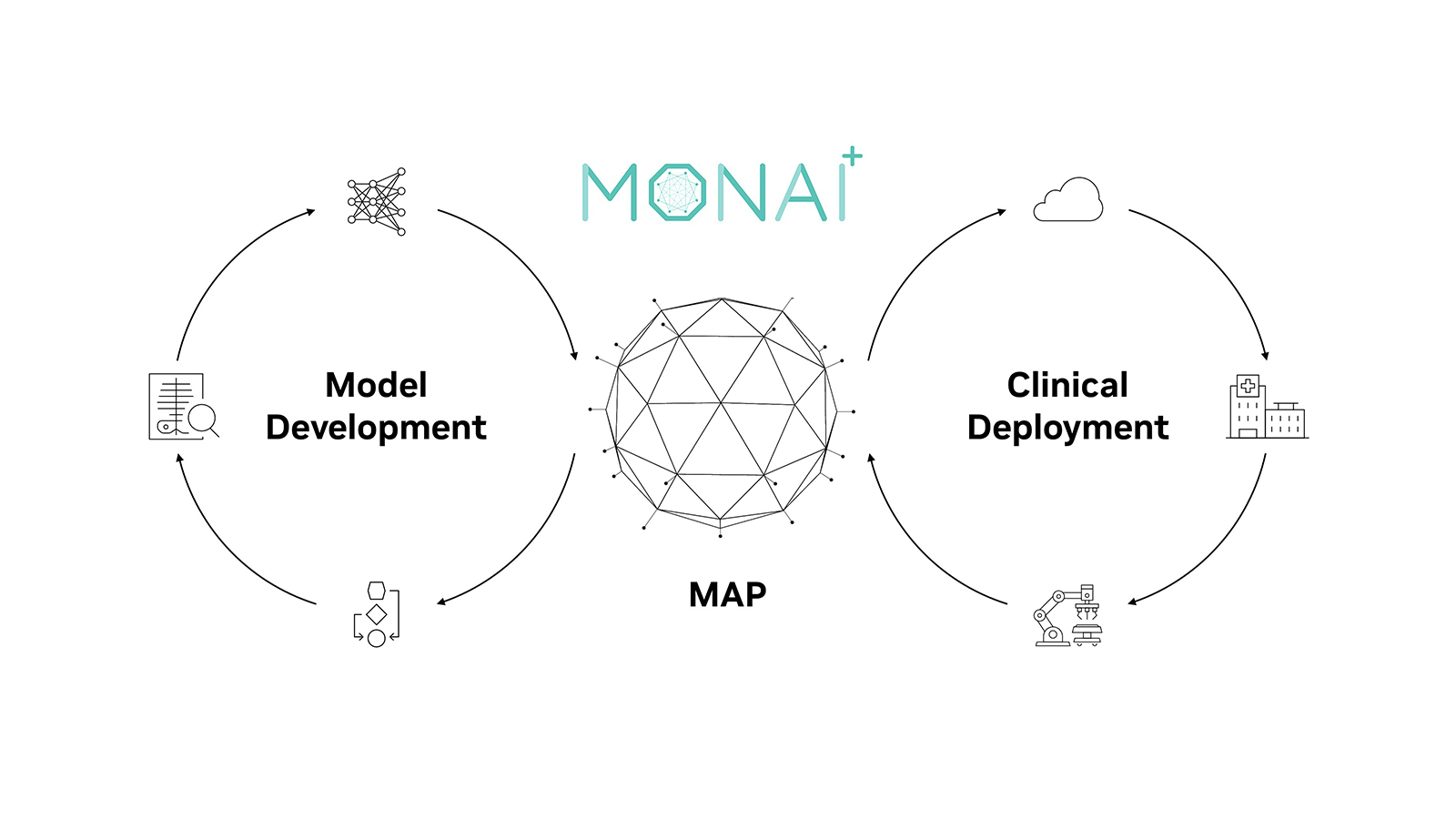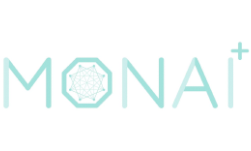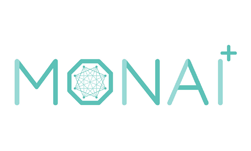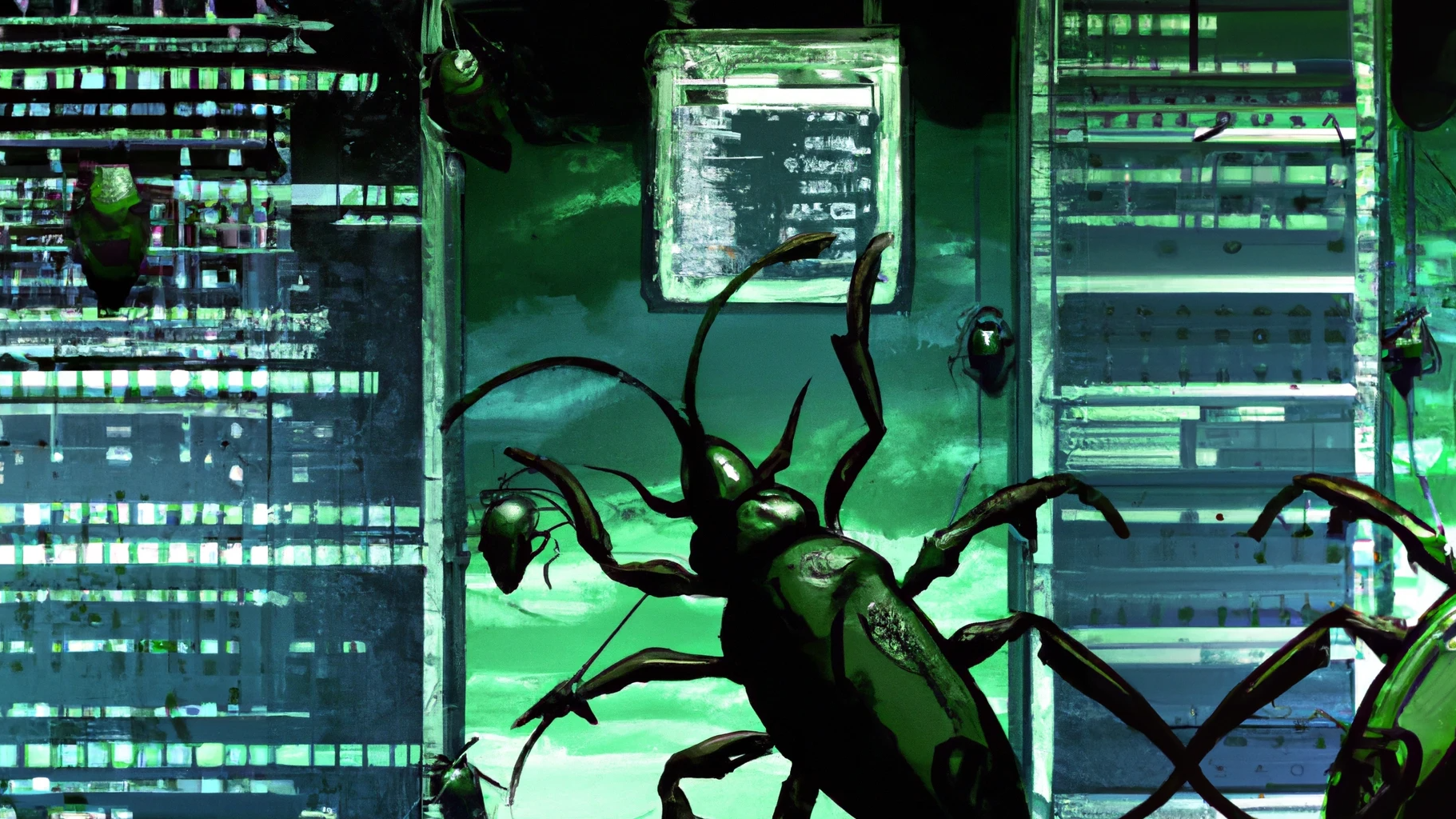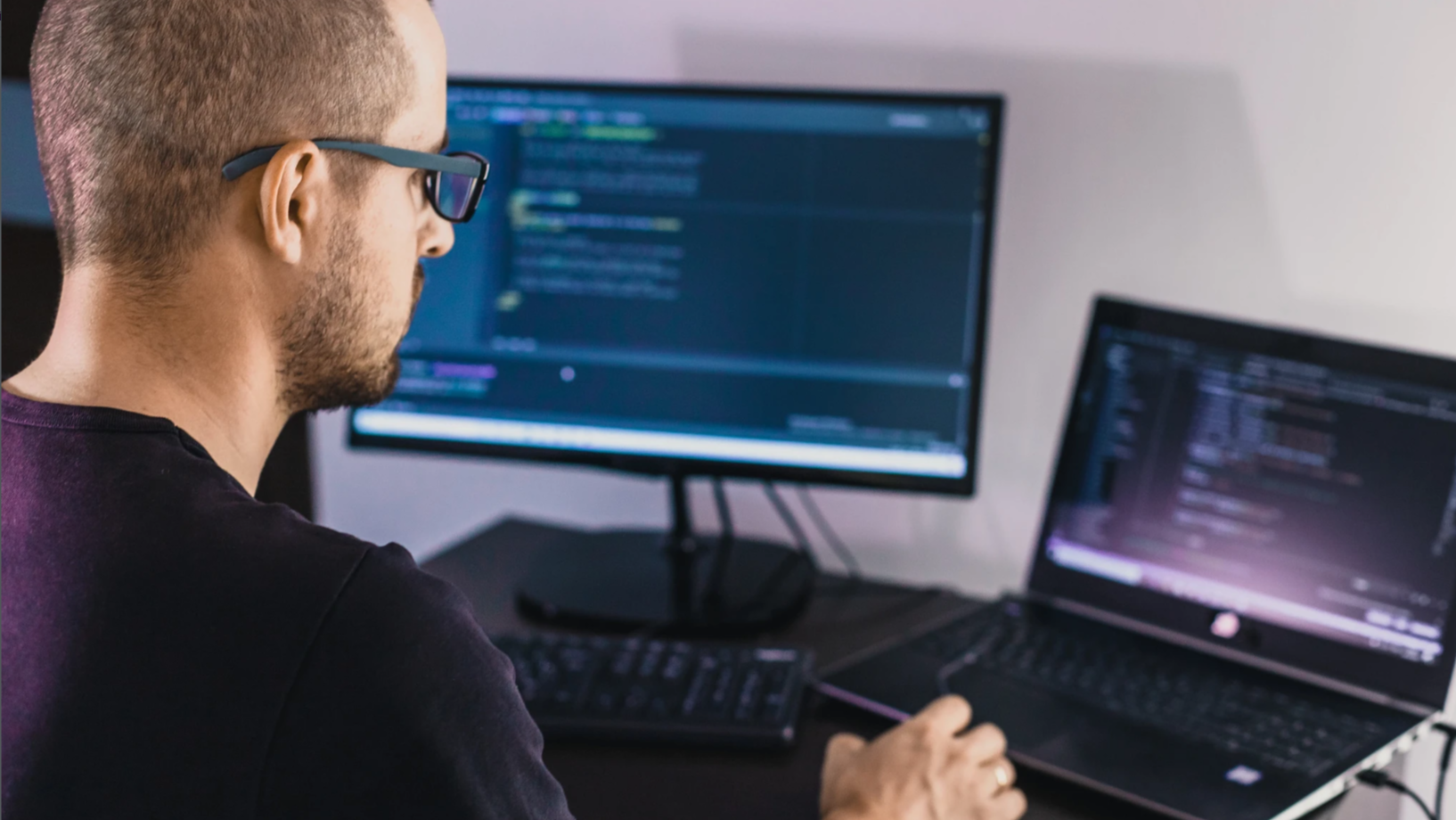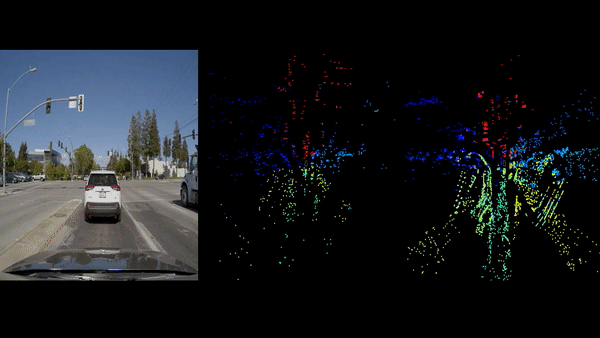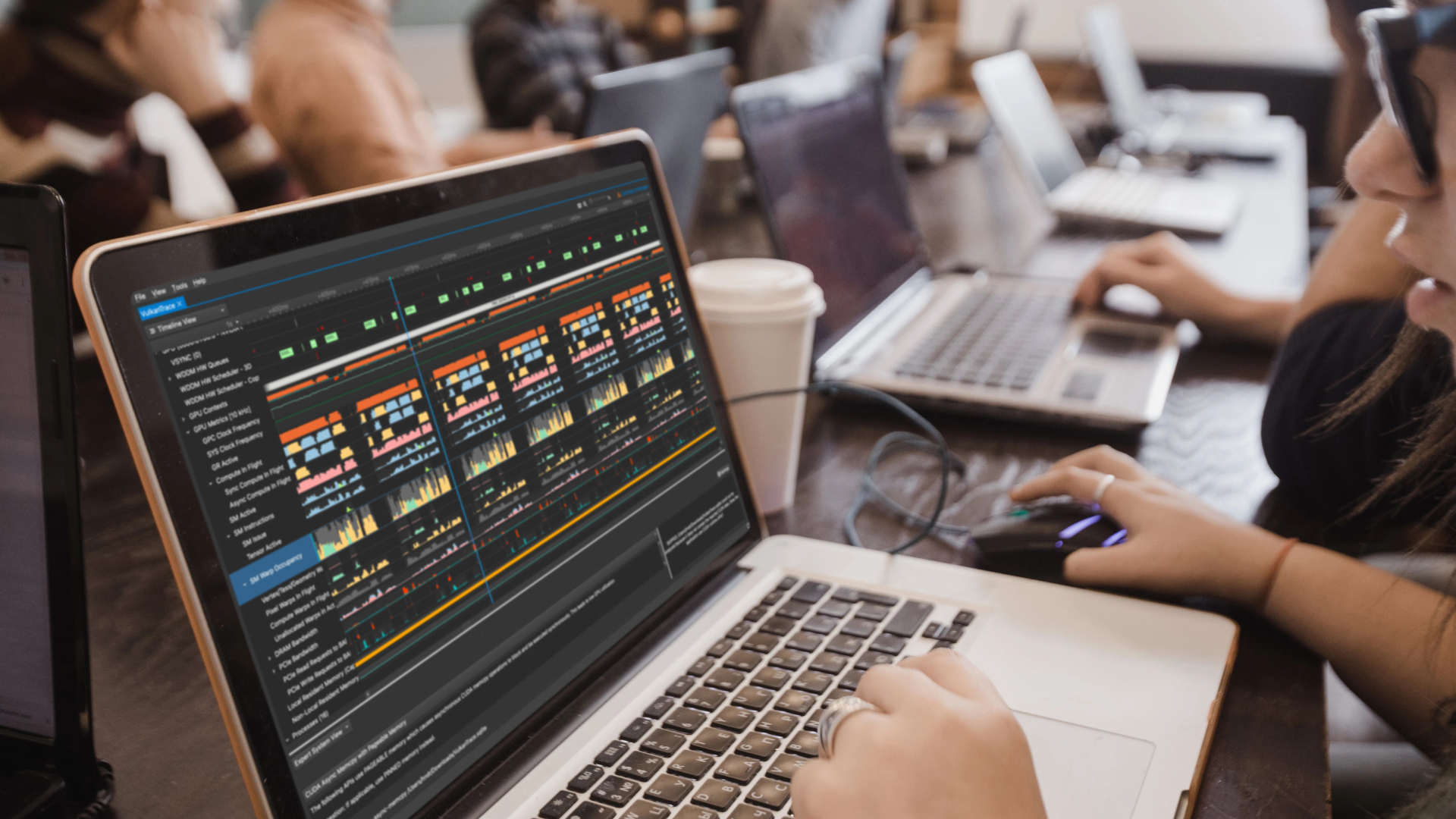Developing for the medical imaging AI lifecycle is a time-consuming and resource-intensive process that typically includes data acquisition, compute, and training time, and a team of experts who are knowledgeable in creating models suited to your specific challenge. Project MONAI, the medical open network for AI, is continuing to expand its capabilities to help make each of these hurdles easier no matter where developers are starting in their medical AI workflow.
A growing open-source platform for better medical AI
MONAI is the domain-specific, open-source medical AI framework that drives research breakthroughs and accelerates AI into clinical impact. It unites doctors with data scientists to unlock the power of medical data for deep learning models and deployable applications in medical AI workflows. MONAI features domain-specific tools in data labeling, model training, and application deployment that enable you to develop, reproduce, and standardize on medical AI lifecycles.
The release of MONAI v1.0 brings a number of exciting new updates and tools for developers, including:
- Model Zoo
- Active Learning in MONAI Label
- Auto-3D Segmentation
- Federated Learning
MONAI is the fastest growing open-source platform that provides deep learning infrastructure and workflows optimized for medical imaging in a native PyTorch paradigm. Freely available and optimized for supercomputing scale, MONAI is backed by 12 of the top Academic Medical Centers (AMCs) and has 50,000 downloads per month. From research to clinical products, the launch of MONAI v1.0 allows researchers and developers to build models and applications in a quick and standardized way.
Jump-start training workflows with MONAI Model Zoo
Training and constructing your own AI models takes significant time, data, compute power, and knowledge of training algorithms. MONAI Model Zoo enables developers to quickly discover pretrained and openly available models specific to medical imaging. By using the MONAI Bundle Format, you can get started with these models in just a few commands.
MONAI Model Zoo offers a curated collection of medical imaging AI models. It is also a framework for you as a developer to create and publish your own models, resulting in an open-source collection of pretrained medical imaging models that can be used to speed up the development process.
Driven by the community, Model Zoo makes cutting-edge medical AI tasks accessible and helps you get started quickly in your workflows with plug-and-play documentation, examples, and bundles. Among the main contributors to Model Zoo are NVIDIA, KCL, Kitware, Vanderbilt, and Charite, including more than 15 models across imaging modalities such as CT, pathology, ultrasound, and endoscopy to perform segmentation, classification, annotation tasks, and more.
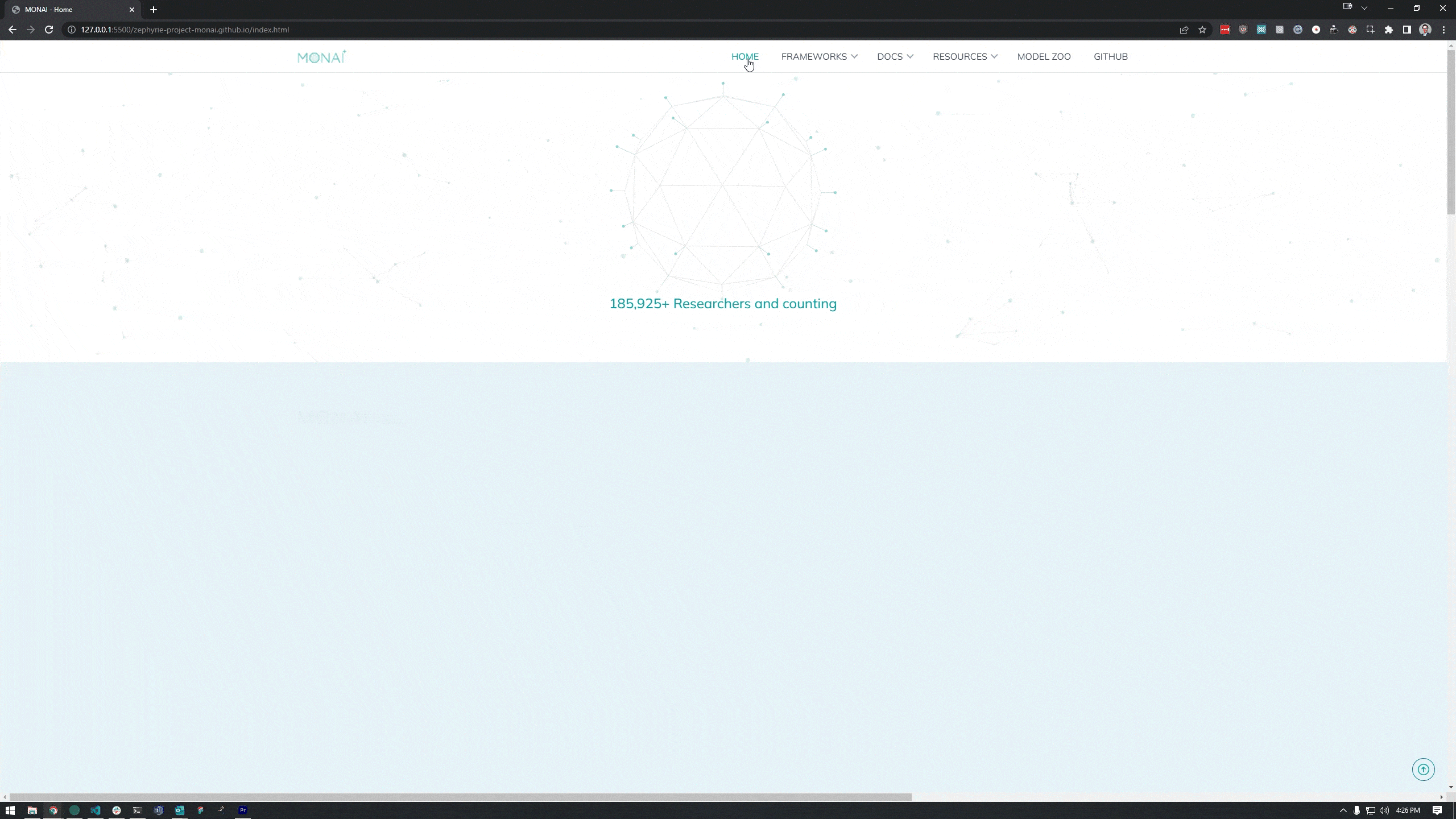
Build better datasets with active learning
The process of labeling data can be time consuming, and experts who can annotate these images may not have time to annotate every image. MONAI Label has enhanced active learning capabilities, which is a process that aims to use the least amount of data to achieve the highest possible model performance. Choosing data that will have the greatest influence on your overall model accuracy allows human annotators to focus on the annotations that will have the highest impact on the model performance.
MONAI Label provides a clinician-friendly application to expertly label data in a fraction of the time while simultaneously training a model at the push of a button. With approaches like active learning, AI-powered algorithms can intelligently select the most difficult images for clinical inputs and increase the performance of the AI model as it learns from the expert. This enables human annotators to focus on the annotations that will provide the highest gain in model performance and address areas with model uncertainty.
Active learning serves to build better datasets in a fraction of the time it would take humans to curate. MONAI Label can now automatically review and label large datasets, flag image data that requires human input, and then query the clinician to label it before it is added back into the training data.
Developers can see up to 75% reduction in training costs with active learning in MONAI Label with increased labeling and training efficiency while achieving better model performance. With active learning, only 25% of the actual training dataset was used to achieve the same result of 0.82 Dice Score as training on 100% of the training dataset.

Accelerate 3D segmentation
The process of model training to achieve a state-of-the-art 3D segmentation model takes significant time, compute, and developer and researcher expertise. To help accelerate this process, MONAI now offers a low-code 3D medical image segmentation framework that speeds up model training time without human interaction.
The MONAI Auto-3D Segmentation tool is a low-code framework that allows developers and researchers of any skill level to train models that can quickly delineate regions of interest in data from 3D imaging modalities like CT and MRI. It accelerates training time for developers from one week to two days with effective models, efficient workflows, and customizability to user needs.
Features include:
- Data analysis tool
- Automated configuration
- Model training in a MONAI bundle
- Model ensemble tool
- Workflow manager
- Trained model weights
Federated learning on MONAI
MONAI v1.0 includes the federated learning (FL) client algorithm APIs that are exposed as an abstract base class for defining an algorithm to be run on any federated learning platform.
NVIDIA FLARE, the federated learning platform, has already built the integration piece with these new APIs. Using MONAI Bundle configurations with new federated learning APIs, any bundle can be seamlessly extended to a federated paradigm. We welcome other federated learning toolkits to integrate with MONAI FL APIs, building a common foundation for carrying out collaborative learning in medical imaging.
Get started with MONAI
To get started with MONAI v1.0, visit the MONAI website. Access Python libraries, Jupyter notebooks, and MONAI tutorials on the Project MONAI GitHub repo.
You can also request a free hands-on lab through NVIDIA LaunchPad to get started annotating and adapting medical imaging models with MONAI Label.

